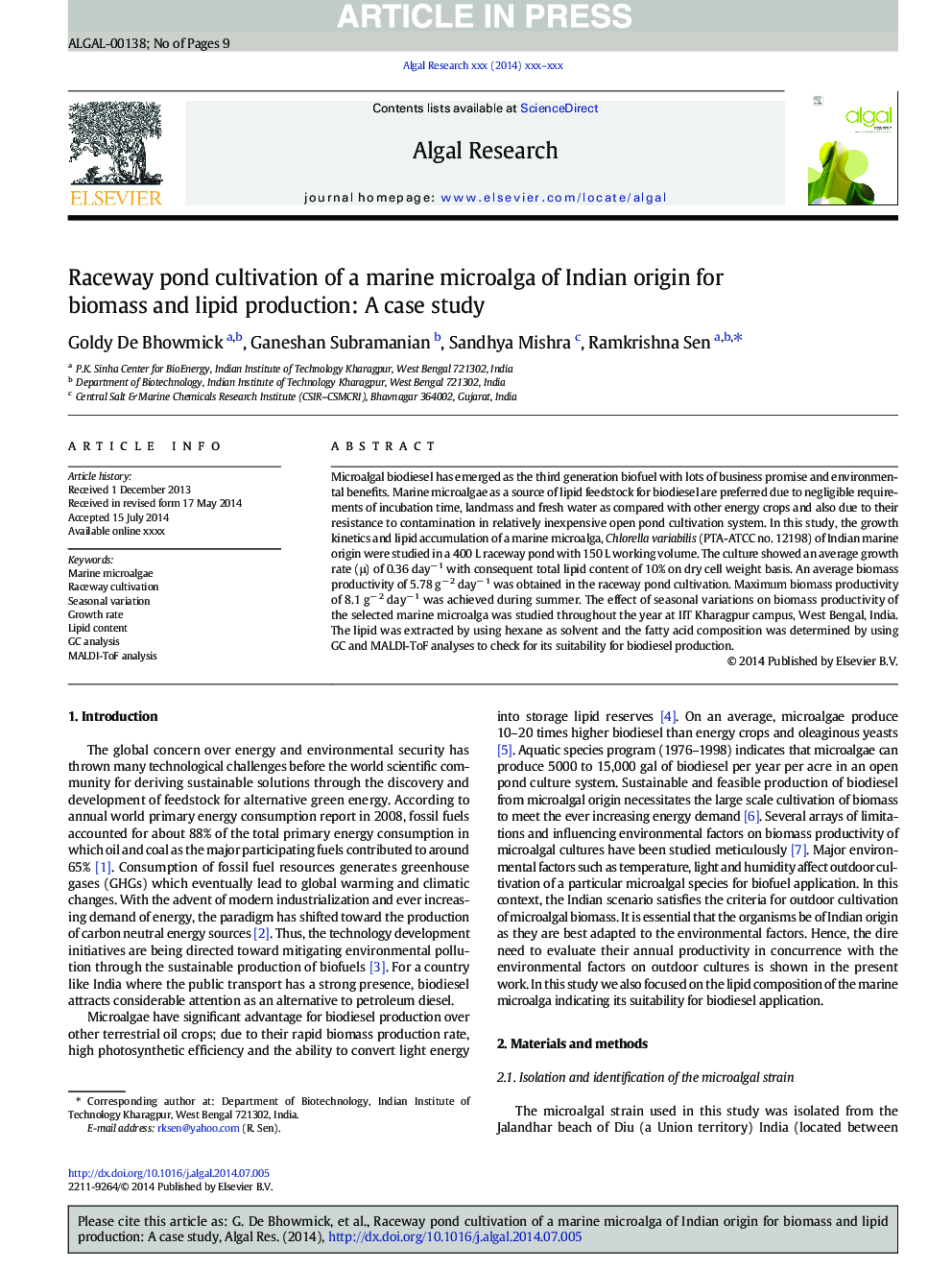| Article ID | Journal | Published Year | Pages | File Type |
|---|---|---|---|---|
| 10687497 | Algal Research | 2014 | 9 Pages |
Abstract
Microalgal biodiesel has emerged as the third generation biofuel with lots of business promise and environmental benefits. Marine microalgae as a source of lipid feedstock for biodiesel are preferred due to negligible requirements of incubation time, landmass and fresh water as compared with other energy crops and also due to their resistance to contamination in relatively inexpensive open pond cultivation system. In this study, the growth kinetics and lipid accumulation of a marine microalga, Chlorella variabilis (PTA-ATCC no. 12198) of Indian marine origin were studied in a 400 L raceway pond with 150 L working volume. The culture showed an average growth rate (μ) of 0.36 dayâ 1 with consequent total lipid content of 10% on dry cell weight basis. An average biomass productivity of 5.78 gmâ 2 dayâ 1 was obtained in the raceway pond cultivation. Maximum biomass productivity of 8.1 gmâ 2 dayâ 1 was achieved during summer. The effect of seasonal variations on biomass productivity of the selected marine microalga was studied throughout the year at IIT Kharagpur campus, West Bengal, India. The lipid was extracted by using hexane as solvent and the fatty acid composition was determined by using GC and MALDI-ToF analyses to check for its suitability for biodiesel production.
Related Topics
Physical Sciences and Engineering
Energy
Renewable Energy, Sustainability and the Environment
Authors
Goldy De Bhowmick, Ganeshan Subramanian, Sandhya Mishra, Ramkrishna Sen,
